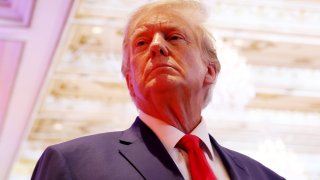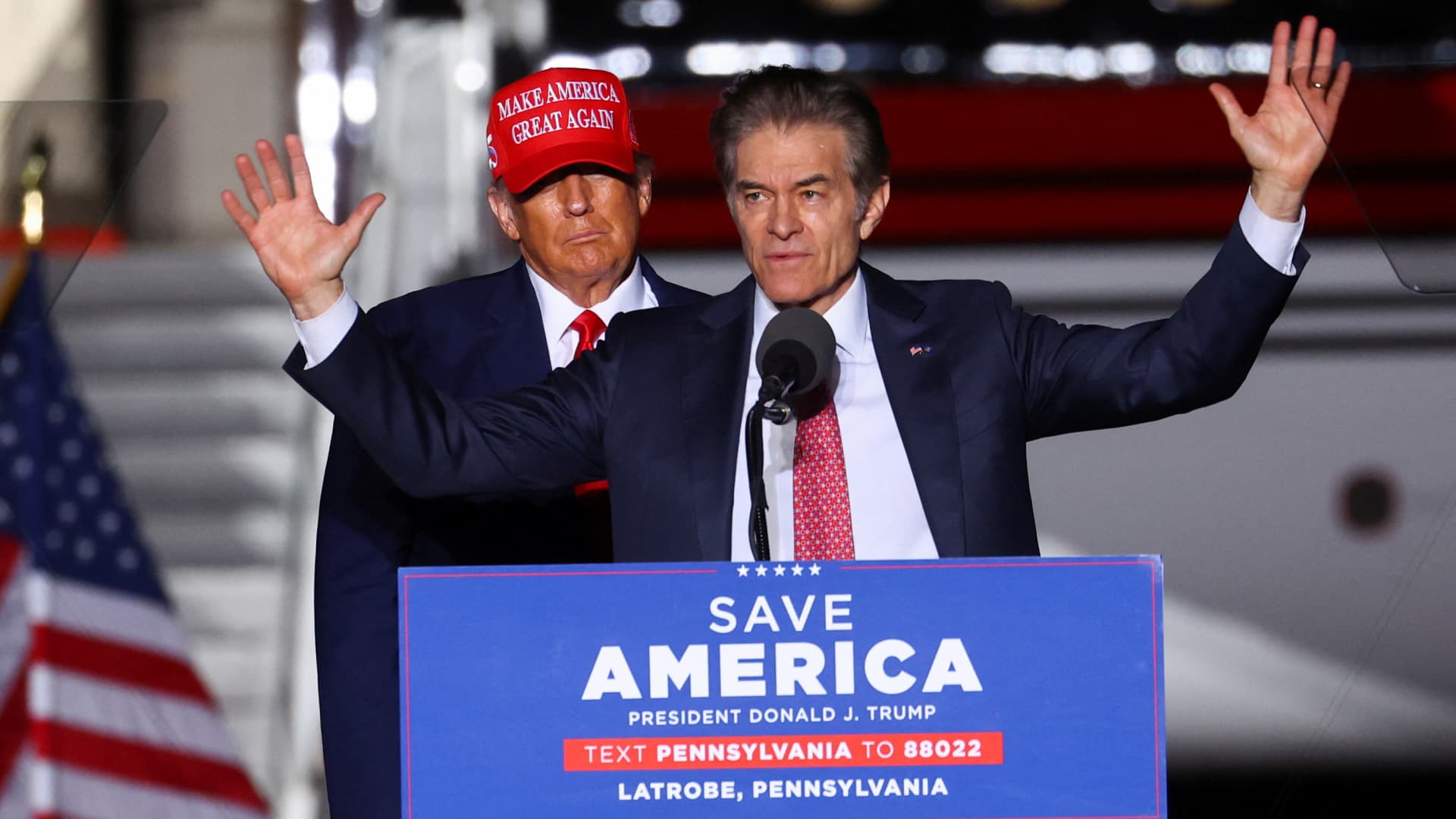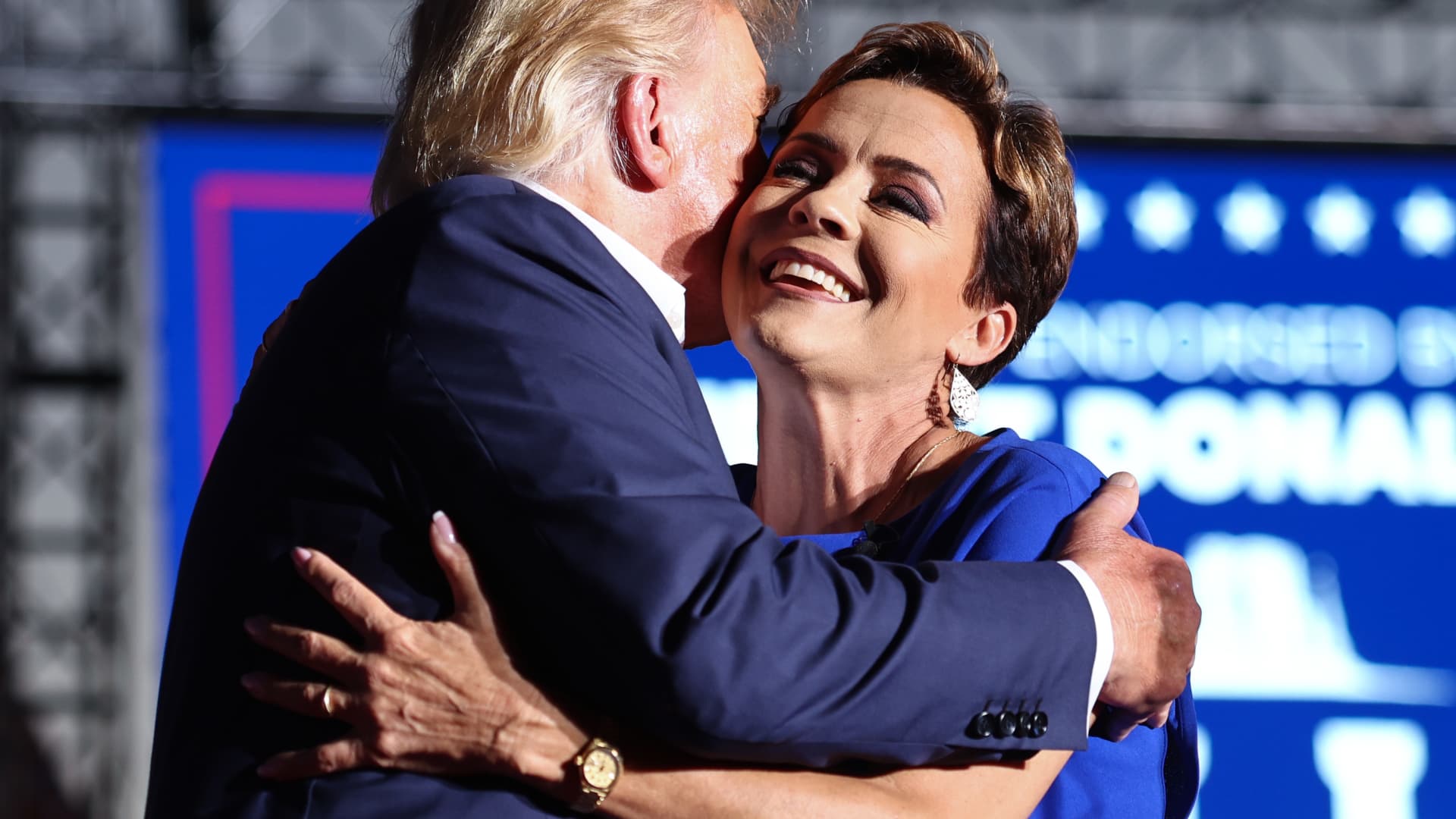
- Former President Donald Trump did not see the victories he had hoped that his endorsement would produce on election night.
- Candidates who embraced Trump's MAGA agenda, in part to win his endorsement, underperformed in some of the most high-profile races.
- Trump was betting Republican wins on Tuesday would serve as a launchpad for his 2024 presidential campaign, which he is expected to announce next week.
Former President Donald Trump hosted an election night party Tuesday at Mar-a-Lago, his Florida resort, and invited a full pool of reporters to document what he hoped would be a Republican landslide.
Earlier in the day, Trump had released a four-page press advisory detailing how much he had done to help Republicans up and down the ballot.
The list ranged from endorsements Trump issued on behalf of obscure secretary of state candidates, to the hundreds of millions of dollars he helped raise for Republicans mounting high-profile Senate campaigns. At huge rallies over the weekend, Trump read off a list of Republican candidates while honing a speech that sounded like his own 2024 presidential campaign stump speech.
The message was clear: Trump was the leader of the Republican Party, and the party would have Trump to thank for its expected victories on Election Day. The former president implicitly put himself on the ballot in recent weeks as he campaigned with 2022 candidates — and all but acknowledged he held back on a 2024 campaign launch he hoped to jump-start before the midterms.
But as returns began to come in Tuesday evening, the Republican rout driven by Trump's chosen candidates never materialized.

In one of the country's most high-profile races, Trump's handpicked Senate candidate in Pennsylvania, Dr. Mehmet Oz, lost to Democratic Lt. Gov. John Fetterman, according to NBC News. The result cost the GOP a Senate seat.
Money Report
In Michigan, Trump-endorsed Republican Tudor Dixon lost a gubernatorial race, while 2020 election denier Kristina Karamo lost her Trump-backed bid for secretary of state, NBC projected.
In Arizona, Kari Lake, a former newscaster turned gubernatorial candidate who is one of Trump's most high-profile proteges, trailed Democratic Gov. Katie Hobbs early Wednesday morning in a race that NBC considered too early to call. Trump-endorsed Senate hopeful Blake Masters, who is challenging Arizona Democratic Sen. Mark Kelly, also lagged in a race that NBC said was too early to call.

To be sure, Trump also had some big wins on Tuesday. Ohio Republican Senate hopeful J.D. Vance defeated Democratic Rep. Tim Ryan to win one of the country's most hotly contested seats, according to NBC.
Earlier this year, Vance won a crowded GOP primary in large part thanks to Trump's endorsement, which carries unparalleled weight with Ohio's grassroots Republican base.
In North Carolina, Trump-backed Republican Senate candidate Ted Budd defeated Democrat Cheri Beasley, NBC projected. In deep-red Alabama, the heavily favored Republican, Katie Britt, also won her Senate seat.
"We endorsed Katie and she did fantastically, 68 to 30," Trump said during remarks at Mar-a-Lago that began shortly after 10 p.m. ET and lasted less than five minutes.
Still, the most resounding Republican victory on Tuesday did not come from a Trump acolyte, it came from his most likely rival for the 2024 Republican nomination. Florida GOP Gov. Ron DeSantis won reelection by nearly 20 percentage points, according to NBC News.
Trump took a shot at the Florida governor just days earlier, calling him "Ron DeSanctimonious" at a campaign rally in Pennsylvania. While Trump declined to endorse DeSantis, however, the Florida resident told reporters that he cast his ballot for the incumbent on Tuesday.

DeSantis' triumph was not one of the wins Trump celebrated at Mar-a-Lago, however.
While the governor rallied hundreds of supporters at a victory party in Tampa, Trump spent the majority of the night huddling with aides and friends at a table in his private club.
After spending weeks painting himself as the central character in his party's midterm election effort, Trump did not appear to have a prepared message to deliver to his loyal supporters on Tuesday night.
Earlier in the day, Trump had told the streaming service NewsNation that he was ready to accept credit for Republican wins, but not blame for their defeats.
"Well, I think if they win, I should get all the credit," he said. "And if they lose, I should not be blamed at all, OK. But it'll probably be just the opposite."
"Usually what would happen is, when they do well, I won't be given any credit, and if they do badly, they will blame everything on me," he said. "So I'm prepared for anything, but we'll defend ourselves."
But being on defense is not where Trump had hoped to be following the midterms.
On the contrary, he and his closest aides planned to use what they thought would be massive Republican momentum to help energize Republicans for Trump's 2024 presidential run.
Over the weekend, Trump suggested he will announce his third run for president on Nov. 15, a decision he reached only after seriously considering whether to announce his campaign on Monday night.
How Trump will spin the disappointing results Tuesday into fuel for his 2024 campaign narrative remains to be seen.
A Trump spokesman did not respond to questions early Wednesday morning from CNBC about whether Tuesday's results would affect the former president's 2024 launch plans.
But one of Trump's enduring traits as both a businessman and a politician has been his ability to pull himself out of seemingly dire situations, and turn tough luck to his benefit.






